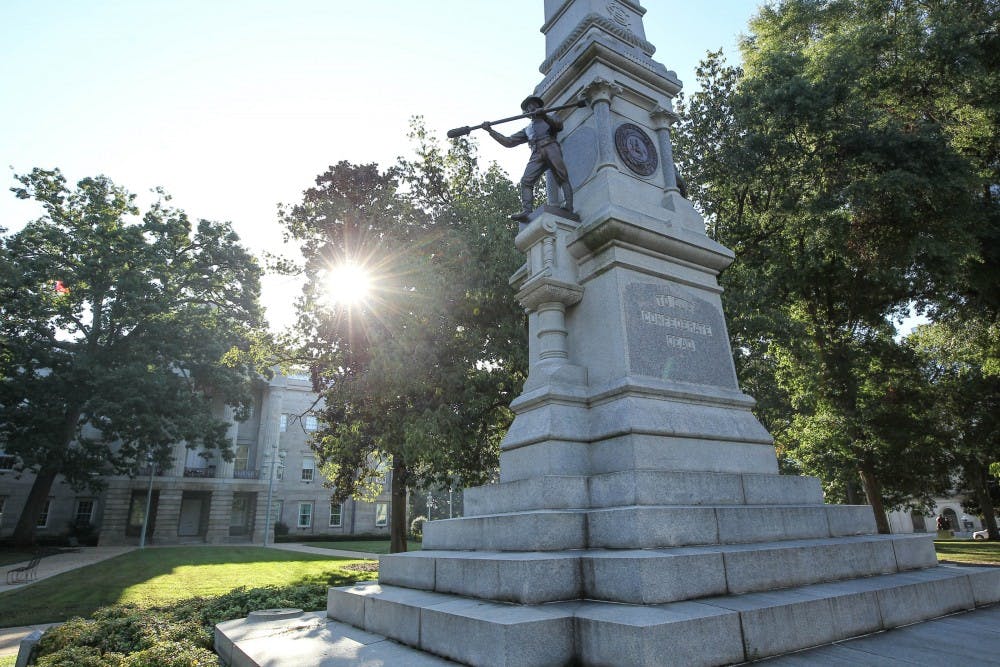A five-member ad hoc committee created by the North Carolina Historical Commission decided Monday there will be at least one public hearing on the possible relocation of three Confederate monuments.
The three monuments on North Carolina’s old Capitol Grounds commemorate the first Confederate soldier to die in battle, North Carolina Women of the Confederacy and fallen Confederate soldiers.
Machelle Sanders, secretary of the North Carolina Department of Administration, submitted a petition in September to relocate the monuments to the Bentonville Battlefield, about 45 miles southeast from the original location.
W.Fitzhugh Brundage, chairperson of the UNC history department, said the committee faces a decision that is very legally murky, and the state legislature is likely to intervene if it decides to relocate the monuments.
“If the historical commission does say that the monuments should be removed, there’s immediately going to be a legal challenge,” he said. “I would think there would be years of legal haggling in that case.”
Brundage said the Historical Commission will likely be very cautious about a small, non-elected body making a controversial decision and expects a long-drawn-out process ahead.
“The Historical Commission is put in a thankless task of having to make what is essentially a political decision,” he said.
Harry Watson, a professor of southern culture at UNC, said the question will likely end up in court. What the court will decide, he said, is still uncertain.
“It’ll take some artful lawyering to persuade the historical commission that it’s legal to remove the monuments,” he said.




